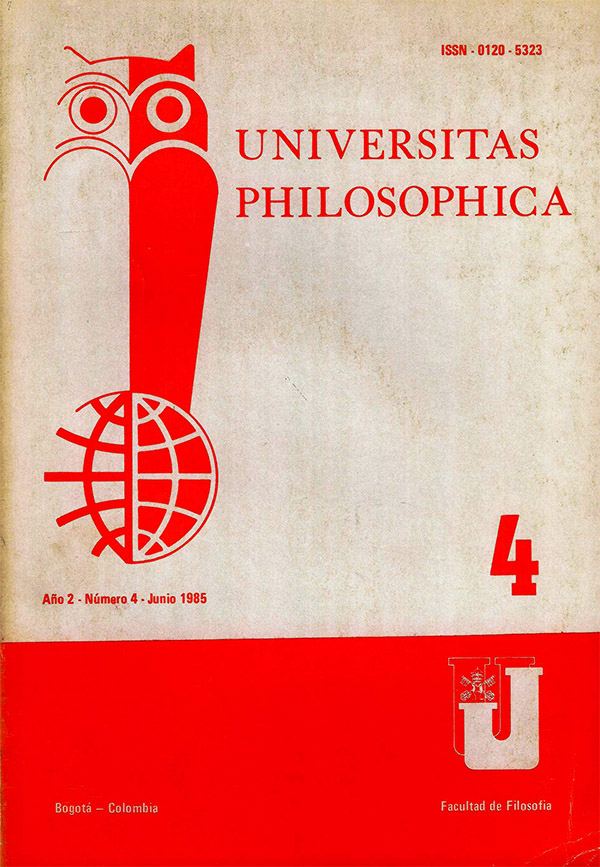Abstract
En este artículo, el autor expone la controversia contemporánea en torno a la existencia de una Filosofía Japonesa.
Reseña los puntos de vista de aquellos que sostienen que en Japón no se ha hecho Filosofía y trata de refutarlos mostrando cómo ha existido en el Japón, por lo menos desde elS. XVIII —cien años antes del encuentro del Japón con la cultura Occidental—, una linea permanente de pensamiento enfrentado criticamente a la tradición mitica. Sin embargo esta tradición mítica se opone, como una antifilosofía; al pensamiento critico-racional e impide el afianzamiento de la filosofia occidental en el Japón precipitándose asi, una grave escisión de la mentalidad japonesa que se halla hoy desgarrada por una doble tendencia irreconciliable en la concepción del mundo y de la vida humana: la exigencia de claridad racional, por una parte, y el carácter mitico de sus creencias básicas, por otra. El esfuerzo conciliatorio realizado por Nishida Kitaroo, muestra la imposibilidad para el alma japonesa de una simple aceptación de la filosofía occidental y la necesidad de una filosofia nueva que haga posible la expresión rigurosa de la dialéctica entre mito y razón que súbyace en la cultura japonesa.
This journal is registered under a Creative Commons Attribution 4.0 International Public License. Thus, this work may be reproduced, distributed, and publicly shared in digital format, as long as the names of the authors and Pontificia Universidad Javeriana are acknowledged. Others are allowed to quote, adapt, transform, auto-archive, republish, and create based on this material, for any purpose (even commercial ones), provided the authorship is duly acknowledged, a link to the original work is provided, and it is specified if changes have been made. Pontificia Universidad Javeriana does not hold the rights of published works and the authors are solely responsible for the contents of their works; they keep the moral, intellectual, privacy, and publicity rights.
Approving the intervention of the work (review, copy-editing, translation, layout) and the following outreach, are granted through an use license and not through an assignment of rights. This means the journal and Pontificia Universidad Javeriana cannot be held responsible for any ethical malpractice by the authors. As a consequence of the protection granted by the use license, the journal is not required to publish recantations or modify information already published, unless the errata stems from the editorial management process. Publishing contents in this journal does not generate royalties for contributors.


